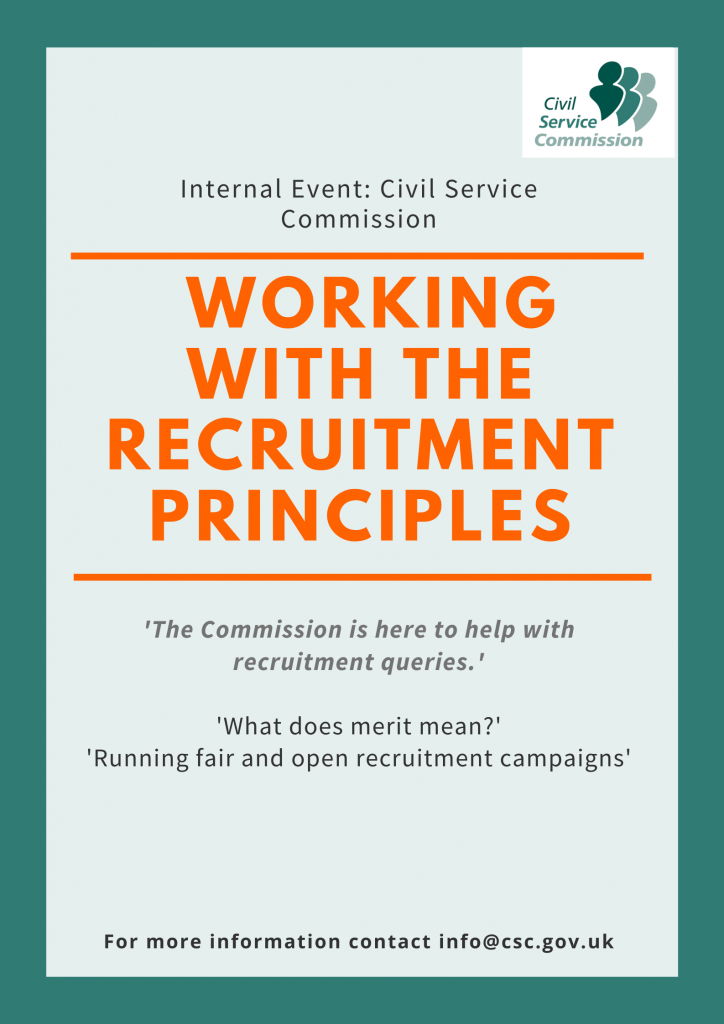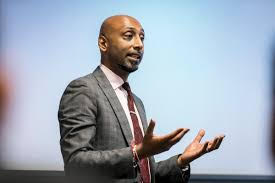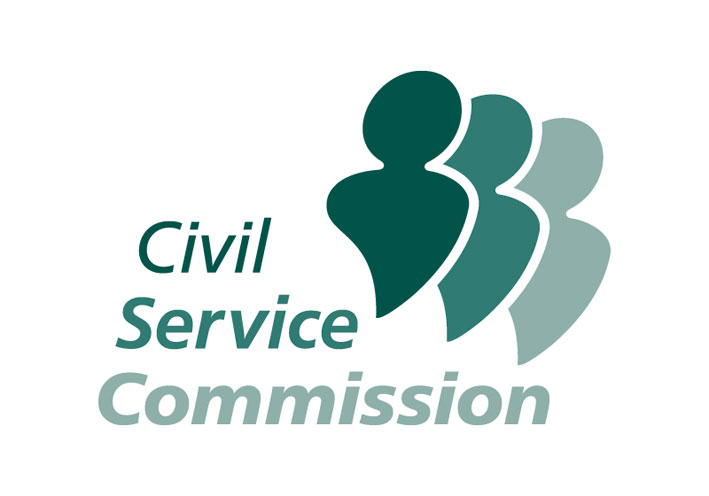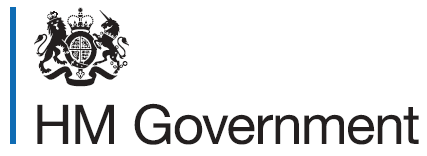Civil Service Commissioner Jane Burgess has recorded a very short zoom presentation on how ministers can and should be involved in recruitment to the Civil Service, in line with the Commission’s Recruitment Principles.
“I hope this helps to explain how ministers can be involved in a fair, open and merit-based process under the Recruitment Principles.”
“It’s really important to find out whether the minister wishes to take an interest in the appointment at the outset so that the minister can be involved properly and there is sufficient time allowed for that during the process.”
Watch Jane's short presentation below:
On 15th January the Commission held an online session with over 100 recruitment managers and team leaders across the Civil Service on working with the Recruitment Principles.

The Commission's Recruitment Principles document is the key source for departments and agencies making appointments. They set out the Commission's interpretation of the statutory requirement of appointment on merit on the basis of fair and open competition.
The Principles also outline the circumstances in which appointments may be made as exceptions to the merit requirement.
The Principles are intentionally high level. It is for departments and agencies to develop and apply recruitment processes that best meet their business needs, while following the Principles.
The online session included a short presentation from Commissioners Jane Burgess and Rosie Glazebrook, followed by Q and A.
Jane Burgess said: ‘I’d really like to thank all those who attended; it was great to have over 100 participants. We want to demystify the role of the Commission and help Civil Service recruiting managers and team leaders feel more confident about developing innovative campaigns that maintain the important principle of appointment on merit after a fair and open competition.“
Rosie Glazebrook said: “There were some great questions from participants. I hope everyone who attended found the session useful and informative. We’ll be running another session later this year but in the meantime our staff are always happy to help with any queries about working with the Principles.”
If you would like to know more about the Recruitment Principles or you are interested in attending a future event, please email us: info@csc.gov.uk
Please watch the full recording of the event below:
Jason Ghaboos
In our sixth blog in this series, Jason Ghaboos, Deputy Director - Civil Service Diversity & Inclusion, talks about his experience of working in the Civil Service.

About Jason
Jason was appointed as Deputy Director, Civil Service Diversity & Inclusion in June 2020. In that role, Jason leads the Inclusive Practice team, working with departments to promote and assure best practice on inclusive working to enable the Civil Service to be an exemplar employer.
What do you think the Civil Service needs to do to attract more candidates from a more diverse background into senior roles? What advice do you have for recruiters?
We need to have more confidence in the positives we have to offer as an employer. The nature, breadth and variety of work on offer continues to amaze me even after 18 years working as a civil servant. The opportunity to shape large, complex change, often impacting the shape of society and the quality of life experience for our citizens is such an amazing offer. These opportunities are our unique selling point, and we should push that more.
We need to engage with people in a variety of ways to ensure our value as an employer is seen and understood by all, regardless of background or experience. We know there are perceptions of the Civil Service that are not necessarily accurate, but nonetheless persevere in pockets of communities.
We should be creative in our attraction of talent, particularly into the SCS, drawing on best practice, available technologies and outreach to engage effectively with those with a range of valuable experiences to reach the broadest audience and a more diverse field of candidates.
What could the Civil Service do better to attract and retain civil servants from a more diverse background overall (at any level)? What do you see as the barriers?
We must make the most of what we have invested in attracting and recruiting talent by improving our retention strategy. Not least, for example, by looking at how we onboard individuals at all levels from the outset of their careers. To promote the uniqueness of working in the Civil Service, our Code, impartiality and ways of working; but also ensuring the diversity they bring (of thought, perspective, innovation) is understood and embraced.
What has been your personal experience of working in the Civil Service? What made a difference to you?
I have been in the Civil Service for over 18 years, starting as an administrative assistant and have worked at every grade between that and my current position in the SCS.
I am immensely proud to be a civil servant. I have worked in immigration, working with business to ensure the necessary talent is attracted and retained in the UK. I’ve also worked in operations, policy development, assurance, project management and process design.
I feel lucky to have had so many different experiences: one day walking atop one of the world's few particle accelerators, examining anti-gravitational chambers where satellites are tested before being put into orbit, supporting embassy work, working with big business to improve UK PLC or undertaking regulatory action to prevent abuse of the immigration system to now working aside some of the most dedicated individuals tirelessly engaged in departments to deliver improved workplace culture.
A key difference for me personally has been the support of my line management team. Good, effective, consistent leadership is key for all our people to inspire, motivate and support. The value of strong leadership and management support cannot be undervalued and should not be left to chance.
Why is diversity particularly important at senior levels?
Crucially, Civil Service diversity will lead to better outcomes for our citizens. It provides us with the ability to meet the pressures and demands facing us as a modern Civil Service, improving our ability, as individuals and collectively as an employer, to solve problems more effectively.
This is about attracting talent from a broad background to promote creativity and innovation. Inclusive working then enables us as civil servants to lead more effectively through a range of increasingly challenging and complex issues and decision making on a daily basis.
What experiences did you have working at a senior level in the private sector? Are there lessons that the Civil Service can learn from the private sector in terms of recruiting staff from a more diverse background?
Whilst on secondment to the University of Cambridge focussing on workplace culture and in my Civil Service roles, I have had first-hand insight of the focus and energy applied to recruitment and retention of staff in the private sector.
I learned much from engagement with organisations like Google about the emphasis placed on onboarding to ensure the potential of new recruits is maximised. It’s an approach that looks at both the individual and the organisation and could be very powerful in supporting our ambitions on improving inclusion.
What drives and motivates you in your career?
Seeing the impact of decisions made on the public and our people is so rewarding. For me, working with other civil servants that are motivated in a similar way and learning from passionate, dedicated people with a wealth of varying experience and backgrounds is the most motivating driver in my career.
What are your interests and hobbies outside work?
Films, various sports, reading and spending time with my cocker spaniel on walks in the countryside.
The Corporate Services team held an online training session on 19th January for all staff on the use of social media. Like all civil servants, Commission staff are expected to adhere to a code which mirrors the Civil Service Code – both online and offline (for further information on Commission guidance visit the links below).
Maggie O’Boyle press officer for the Civil Service Commission opened the session with some guidance around using social media in a professional capacity, highlighting that social media is like any public forum and the same considerations apply as would to writing something or speaking, even in a personal capacity outside of work.
In the training session; Ben Fritter, Nicola Carpenter and Richard Webb took the team through the Civil Service Guidance, while also highlighting key messages and concerns around cyber security and the use of social media.
Pete Lawrence, Chief Executive of the Commission, said:
"It is important every member of staff understands what is expected of them and to recognise that even where your account says things like ‘tweeting in a personal capacity’, it does not absolve you of the requirement to follow the Code. The Code values of honesty, impartiality, integrity and objectivity apply online and offline."
For further information about the session, please visit the links below.
Download the Commission Slides:
Click Here to be redirected to Social Media presentation.
Link to guidance:
https://civilservicecommission.independent.gov.uk/wp-content/uploads/2019/03/01b_Code-of-Practice-for-Staff.pdf
https://www.gov.uk/government/publications/civil-service-code/the-civil-service-code
https://www.gov.uk/government/publications/social-media-guidance-for-civil-servants/social-media-guidance-for-civil-servants
Seonaid Webb MBE
In our fifth blog in this series, Seonaid Webb MBE - Deputy Director, Head of Secondary Legislation, Constitution and Borders Directorate, DEFRA and Deputy Disability Champion - talks about her experience of working in the Civil Service.

About Seonaid
Seonaid has been a civil servant for 17 years and is currently a Deputy Director in DEFRA where she is Head of Secondary Legislation. Prior to that, she worked in the Home Office for 15 years in a variety of policy and operational roles, the last of which was as head of the Windrush Lessons Learned Review team. She is creator and chair of the award-winning Civil Service Working Through Cancer Network.
What do you think the civil service needs to do to attract more candidates from a more diverse background into senior roles? What advice do you have for recruiters?
People need to be curious about diversity. By that, I mean learning from people with protected and non-protected characteristics about what would attract them to a role, and what they look for in leadership role modelling.
For example, we can improve the language and narratives in job adverts to be more inclusive. Plain English and a wider expectation of non-role related experience and behaviours, rather than just specific Civil Service terminologies and career experience, is a good start.
What could the civil service do better to attract and retain civil servants from a more diverse background overall (at any level)? What do you see as the barriers?
I always attend my local secondary school’s careers fairs and professions events. It’s clear that many young people haven’t heard of the Civil Service, and in particular, don’t realise what excellent and diverse opportunities we offer in terms of entry (apprenticeships and Fast Stream for example) and in terms of professions (from communications and project management to digital and policy – there is something for everyone). I always take one of my apprentices or Fast Streamers with me to the events and we tag team on marketing the Civil Service as a great place to work. The response is always so inspiring – students who realise that there is an amazing career on offer with or without a degree level education. Quite often parents also take our leaflets for themselves! So, if I could suggest one mandated objective for senior managers it is to attend their local (or closest town/city if they don’t have one nearby) secondary school’s careers events and to encourage people from as many backgrounds and life experiences as possible to join us!
What has been your personal experience of working in the civil service? What made a difference to you?
I have been a Civil Servant now for nearly 17 years. I have absolutely loved the variety of roles I’ve been in from policy to operations, strategy and continuous improvement. Having the flexibility to move departments and test my leadership skills in a new environment is so valuable. For me, knowing that I’m working on issues that really matter – and supporting the UK’s objectives – has always been my main driver. And then working in organisations that are inclusive, diverse and where talent is nurtured is something I feel personally driven to support and improve.
Why is diversity particularly important at senior levels?
It’s easy to fall into a pattern of decision making that is ignorant of wider risks, issues and opportunities if we don’t have diversity at senior levels. Quite often the person who is challenging the status quo, and asking the “but why?” questions is the one who spots the best ways to improve the way we work and the service we offer our customers.
For example, do our impact assessments always ask the right questions, and cover the breadth of communities affected by new policies? The Civil Service must be representative of the rich diversity of the public we serve – right now, it’s getting better but there is still a long way to go.
What drives and motivates you in your career?
I have already mentioned that I love working on issues that matter to the UK. As a leader, I am also passionate about developing talent and creating a great place to work. I’ve mentored and sponsored people for more than 12 years now, and every person’s happiness at their achievements and successes is important to me.
I want to make sure we build the confidence and capability of the next generation of senior managers, to remove barriers and increase opportunities.
And finally, I care deeply about inclusion for all. As the chair of the Civil Service Working Through Cancer network, and DEFRA's Deputy Disability Champion, I am motivated to role model behaviours that increase awareness, remove barriers and improve the lived experience of disabled colleagues across the Civil Service.
What are your interests and hobbies outside work?
I love reading (I’m part of a decade long book club), and I love travelling with my family – usually to European destinations, but in 2020 I’ve really enjoyed visiting as much of the UK as possible and enjoying the rich diversity of our natural landscape; from coastlines to mountains to forests. We’re so lucky and must leave a legacy where the beauty and importance of our natural environment are maintained (and improved) for future generations.
The REACH - Senior Disability Network has recently published a series of interviews as part of their 'Empowering Disabled Staff into Senior Grades' workshop series. Please see below links to all six interviews:
Ben Merrick
Seonaid Webb
Stuart Armstrong
Shaun Gallagher
Jeanette Rosenberg
Stephen Braviner Roman
Nagesh Reddy
In our fourth blog in this series, Nagesh Reddy, Portfolio Director - DWP Change Delivery, talks about his experience of working in the Civil Service.

About Nagesh
Nagesh was appointed Portfolio Director - DWP Change Delivery in January 2020. In that role, Nagesh leads a range of programmes spanning change, transformation and delivery covering areas such as Economic Recovery, Devolution and EU transition.
What do you think the civil service needs to do to attract more candidates from a more diverse background into senior roles? What advice do you have for recruiters?
We need to engage with the social media networks both local and national to reach the diverse workforce; a mainstream approach gives you mainstream results. We also need to ensure roles that are advertised, where possible, reach the greatest diversity of potential. When drafting those adverts, we need to appeal to a more diverse group of individuals, rather than just being so restrictive that they only attract talent or promote specific talent from within.
We should use local and national networks to reach a more diverse pool and also have more visible role models - both from within and from outside - that people can relate to and aspire to be like. This would help increase confidence that you can make it into the Senior Civil Service irrespective of your social, economic or specific characteristics.
What could the civil service do better to attract and retain civil servants from a more diverse background overall (at any level)? What do you see as the barriers?
If we develop recruitment and promotion exercises with a certain mindset, the outcomes will inevitably be the same as before – we need to have a different perspective throughout the whole process. Our processes may need to be revisited and revamped to remove barriers for certain groups to level the playing field.
What has been your personal experience of working in the civil service? What made a difference to you?
I have been in the civil service for over 20 years, starting as a ‘casual administrative assistant’ in front-line operations; now working as a Director, delivering multi-billion pound programmes. I love what I do and I know it may be a cliché but making a difference to people’s lives is my motivation. What made a difference to me has been a strong network, great leaders, mentors, colleagues and sponsors who gave me the belief that I could succeed.
Why is diversity particularly important at senior levels?
We serve the communities of the country in so many ways. If we are going to do that effectively, we need the insights, experiences and knowledge of a diverse range of people to make sure the policies we develop, design and implement have those insights to develop the best solutions. Also, so that we can have confidence they will make the difference. Having visibly diverse leadership increases confidence in the policies and solutions being developed and in the recruitment of a diverse pool of people.
What experiences did you have working at a senior level in the private sector? Are there lessons that the civil service can learn from the private sector in terms of recruiting staff from a more diverse background?
Within the private sector, they are often able to move at a greater speed to recruit and also offer a more flexible remuneration package – which I know can be a challenge within the civil service. We should look at speeding up the hiring process, which can be frustrating for people and we can lose good people to other opportunities because the private sector is so much faster to take them on.
What drives and motivates you in your career?
Making a difference - seeing the difference I have made every day to society and the public we serve.
What are your interests and hobbies outside work?
Films, music and long walks with the mobile phone switched off.
In our third blog in this series, Ben Merrick, Director, Overseas Territories Directorate, HM Commissioner for the British Indian Ocean Territory and HM Commissioner for the British Antarctic Territory, talks about his experience of working in the Civil Service.

About Ben
Ben was appointed Director of Overseas Territories at the Foreign & Commonwealth Office in August 2017. In that role, he holds office as Commissioner of the British Antarctic Territory and Commissioner of the British Indian Ocean Territory. Previously he was the Deputy Director of the Overseas Territories and has worked in the Ministry of Defence and Cabinet Office.
What do you think the civil service needs to do to attract more candidates with a disability into senior roles? What advice do you have for recruiters?
The Civil Service needs to continue on its path of having role models with disabilities in senior positions to demonstrate what is possible. It needs to set out in the publicity for a role the scope for operating at that level with a disability, ensure necessary workplace adjustments are made and maintain & increase targeted leadership support eg through the DELTA programme (part of the Future Leaders Scheme). Recruiters need to be very clear in their material about roles that the Civil Service is determined to ensure the recruitment process is accessible, the job itself and working environment are fully accessible, and make clear that they are very happy to discuss potential workplace adjustments etc with candidates. Line managers in particular need to make sure they have really thought about the requirements of a role, where the flexibilities are, and how they can make the environment as accessible as possible.
What could the civil service do better to attract and retain civil servants with a disability overall (at any level)? What do you see as the barriers?
On top of what I’ve said above, it’s about promoting aspirations of people at all levels and to ensure they feel that they can belong in the Civil Service and perform to their maximum extent. Although the Civil Service aims to get workplace adjustments in place, there are often practical barriers (eg around physical access or IT / assistive software) as well as attitudes about what is and isn’t possible from certain colleagues (and occasionally self-imposed limitations from disabled colleagues who may not know what is actually possible).
What has been your experience of reasonable adjustments and how have these helped you to do your job?
I’ve had wide experience. Many are in the very easy category, eg people telling me who they are rather than expecting me to recognise them, or the Permanent Secretary getting people to introduce themselves at meetings. Those have been straightforward, though partly related to my telling people from the outset about my situation and the changes I needed. Others have been more variable – IT provision in some departments has been very good and swift in terms of getting my assistive software on the system, but in other places it’s taken far longer - six months on one occasion and a year on another. This has a massive impact on one’s ability to work. For example, I currently have no ability to access Rosa as it doesn’t work with screen readers, so there is still work to do. Other issues have sometimes required me pushing, for example getting learning materials for a year-long financial course on CD-ROM, where initially the educational publisher claimed they weren’t available in soft copy until I pushed them very hard.
Have you seen good/bad examples of reasonable adjustments provided to disabled employees in the civil service?
Yes. As well as my own examples above, I’ve seen lots of adjustments provided to colleagues, including by the Civil Service Workplace Adjustments Service. Those have mostly been fine for the more straightforward issues, but I’m aware of some cases which have run on for many months. This is completely unnecessary and has left the disabled individual highly frustrated. Sometimes it may be unavoidable, but almost always it relates to excessive bureaucracy or line managers just not doing their jobs properly in moving things forward, or not being given sufficient support to know what to do.
What has been your personal experience of working in the civil service? What made a difference to you?
I have for the most part very much enjoyed all my various jobs working in the Civil Service. What’s made a difference to me is having important & fulfilling work where I can identify the difference I’m making, with a strong and supportive team, and having the IT and adjustments I need in order to operate properly.
Why is diversity particularly important at senior levels?
To slightly broaden the question, I think Diversity and Inclusion is important at all levels for moral and legal reasons, but also because it gives us better policy & delivery outcomes, improves our recruitment & retention and makes us more representative of the society that we serve. At senior levels, it’s particularly important because we shape the overall approach & culture of the organisation and provide a role-model for everyone.
What experiences did you have working at a senior level in the private sector? Are there lessons that the civil service can learn from the private sector in terms of recruiting disabled staff, provision of reasonable adjustments etc?
I haven’t worked at a senior level outside the Civil Service. However, I did work for six years for Childline in my spare time as a volunteer counsellor, as well as training new counsellors & occasionally managing shifts. The recruitment process was incredibly open – when I asked if my disability would be an issue they just said they were committed to making it work, and they made various small adjustments to the training etc to enable me to do it properly.
What drives and motivates you in your career?
It’s the ability to do important and interesting work which makes a difference. More recently, I’ve become particularly interested in leadership and role-modelling side of things, coaching and building capability in those coming up behind me, and seeking to really influence the culture of the whole Civil Service and promote our values.
What are your interests and hobbies outside work?
I spend lots of time with my kids (9 and 11) introducing them to the world, even if that’s been slightly curtailed this year. I’ve taken up running during lockdown after doing Couch to 5k at Easter and now do a lot. I also like reading and Scrabble (and some cooking) in such spare time as I have. Pre-COVID we also used to enjoy travel.
The online event on Wednesday 7th October was aimed specifically at candidates for Senior Civil Service roles who have a disability. The event was chaired by the Chief Executive of the Civil Service Commission, Peter Lawrence OBE, alongside two independent Civil Service Commissioners, Jan Cameron and June Milligan and the Commission Disability Advisor, John Knight CBE.
The Civil Service Commission regulates recruitment into the Civil Service to make sure it is fair, open and merit-based. Commissioners personally chair recruitment competitions for senior roles.
The speakers covered a range of topics of relevance to candidates for senior roles who have a disability:
- Overview of the senior recruitment process
- What Commissioners are looking for
- Disability Confident Scheme
- Reasonable Adjustments
- Q&As throughout via Slido
The full recording of the event can be found through the link below:
In addition, there were a number of unanswered questions on Slido that we did not have time to address during the event. The questions and answers can be found below:
1. Do you have people sponsors that can help those in the lower grades to get up the ladder and to get into senior leadership roles, especially those from a BAME background as I find there are very few BAME senior civil servants?
This is not something the Commission can advise on although John Knight mentioned the help that mentors can bring. Diversity Networks can often put you in touch with mentors, and not all mentors need to have a protected characteristic. Many will give you help and advice.
2. In my department recruitment boards have to be gender mixed to be diverse through male/female. Why can’t diversity be shown in a different way?
This is a matter for individual departments to consider. The Commission would encourage all organisations to consider diversity in its recruitment boards or panels, and this is slowly becoming standard practice. It is often a challenge to find diverse representatives at the right grade. Some departments are ensuring panels are diverse by having members from lower grades, which also provides a learning experience FOR the individual on the panel.
3. The national statistics show that 16% of adults at working age have a disability - what is being done to bring the CS up from 6% to be representative?
As Peter Lawrence mentioned the Commission is ideally placed to influence and encourage diversity in the senior campaigns that are chaired by the Commissioners. You should contact Civil Service organisations directly to ascertain what they are doing to improve representation in this area.
4. Do you have people with disabilities on sift and interview panels for the SCS?
The Commission always supports the use of diverse panels, but panels are usually chosen by departments and agencies. Commissioners often ask for diverse panels, and other exercises in SCS selection processes try to incorporate diversity. Staff engagement exercises often have a diverse group.
5. I have a number of reasonable adjustments in place in my current role, if I apply for an SCS role should I mention this at the very start of the application process?
If you need reasonable adjustments as part of the application process you should certainly discuss this with the vacancy holder before you apply for the role, equally if you are invited for an interview you should notify the vacancy holder as soon as possible. SCS is often managed by a small team in departments, and they are often open to conversations prior to applications being made.
If you have any other questions please email us at: info@csc.gov.uk.
The Art of the Possible – supporting the Civil Service Diversity and Inclusion Strategy
The drive to increase the diversity of the Civil Service is keenly shared by the Commission. As the regulator, we’re there to provide assurance that appointments are made fairly and on merit, so internal levers to increase diversity such as talent development programmes, temporary promotion, mentoring etc.. are not within our remit.
But with the Commission’s unique perspective across departments’ recruitment from chairing open competitions at senior levels and its role in auditing processes across government, we are using our experience and influence to help departments deliver on their ambition to be more representative of the country they serve.
Challenging the Civil Service to improve diversity in the SCS is one of the Commission’s strategic priorities, set out by Ian Watmore in 2016 Key strategic aims and actions that flow from this include:
How can the Commission support departments to get more diverse candidates?
- by increasing our own data capabilities (capture and analytics)
- better communications/encouraging applications
- increasing the Commission’s presence/raising our visibility
- improving departmental job packs and advertising strategies when chairing SCS competitions
How do we help departments maintain their focus on diversity?
- working with networks and other stakeholders
- regular discussion at the Commission board and diversity working group
- communications and events
- promote and challenge when chairing competitions
- use compliance visits to encourage and support HRD and Perm sec
How do we create challenge in the diversity agenda?
- recognise, join and promote the different outlets for work on diversity across government, for example, the People Board
- raise awareness at the outset of competitions, and ensure it is embedded at the planning stage- with action points for departments
- regular monitoring of data
- Commissioners feeding back on competitions, adding to our best practice guide and using these insights in future competitions
Link Commissioners
Our Commissioners are ideally placed to use their influence in competitions and in their roles as link Commissioners. The link Commissioner role pairs Commissioners with the 20 or so main departments and professions with the aim to meet regularly with Perm Secs and/or HRD’s/Heads of Profession to discuss recruitment activity. Link Commissioners act impartially and champion best practice and promote compliance with the Recruitment Principles and the Civil Service Code. The link Commissioners are ideally placed to provide advice and challenge on departmental plans to enhance diversity through recruitment.
Diversity working group
As well as overseeing competitions, our Commissioners, who bring broad experience across all sectors, engage in a wide range of Commission work, including working groups that have delivered a number of positive actions:
- Best Practice Guide, collecting information to enable Commissioners to better challenge departments to think more widely when recruiting to senior positions.
- D&I reporting is now a key component of compliance in the Commission’s audits, particularly around risk ratings given and the scorecards.
- Demystifying events to engage with different stakeholders on the Commission’s purpose and the application of the Recruitment Principles and the Code.
- Evening event with search firms and other interested stakeholders with the aim of strengthening mutual engagement around issues including the government’s diversity statistics, initiatives and barriers.
- A virtual event for candidates with disabilities who are interested in SCS roles, another demystifying event later in the year, and more blogs/short films on our website to promote careers in SCS for BAME and disabled candidates.
More information and statistics about the work of the Commission is available in our interactive annual report: https://civilservicecommission.independent.gov.uk/wp-content/uploads/2020/07/CSC-ARA-Report-201920-Interactive.pdf
If you would like to know more about the Commission’s role in recruitment, take a look at our short videos: https://civilservicecommission.independent.gov.uk/recruitment/recruitment-principles/
If you would like to speak to one of our team about our work in supporting the Civil Service on diversity and inclusion, please email: info@csc.gov.uk

